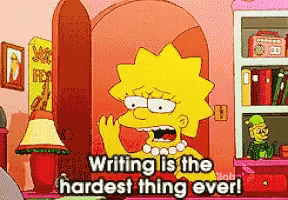Stop texting your essay

Here’s a funny thing I notice when teaching teens: they can text a whole novel in emojis and slang and sound totally natural.
“Dude messed up, bro 😂” takes zero effort.
They can roast, vent, and narrate entire dramas in 140-character bursts. But ask them to write an essay, and suddenly it’s like I’ve asked them to translate Martian.

When kids actually sit down to write, most don’t literally put slang in their essays.
What appears on the page is something different, but just as unhelpful—what I call vague conversational tone.
It sounds like this:
- “Things mattered in 17th century England.”
- “It had a massive effect.”
- “So that was important.”
Not wrong. But not exactly essay-worthy either. The kids get average marks and don't know what to do to improve.
Let's unpack what's happening.
Their well-practiced slang/text-speak is all swagger: quick, coded, packed with personality.
But trying to put their words and opinions into an essay structure, the result comes out as the opposite: timid, watered-down, vague.
Neither belongs in an essay. But both show us something important: students already know how to communicate. They have found their voice. Slang proves they can be sharp, funny, and precise with their peers. Conversational tone proves they can string sentences together—even if the words are fuzzy.
The challenge is moving from either extreme to the sweet spot: academic voice.
Academic voice isn’t a foreign language. It’s not about sounding like a robot in a library. You’ll never sound like that anyway—it isn’t you.
It’s simply your ideas, but polished, precise, and dressed for the occasion.
Think of it this way:
- Conversational tone: “It had a big effect.”
- In academic voice: “The individual’s decision led to a series of unintended consequences.”
Or:
- Conversational tone: “Things were really important back then.”
- Academic voice: “These events significantly shaped the political and social structures of the period.”
See the difference? Conversational tone → sharper, more specific phrasing. Same ideas, but leveled up.
Parents, your job isn’t to ban casual language. That would be weird.
It’s to show kids that the same wit and insight that shines in a group chat can also shine in an essay. Next time they send a text:
"I need food"
Text back: "Convince me in words" (not in gifs of dogs with pleading puppy eyes).
Students, your academic voice is not a boring echo of some model answer that's been put in front of them. It’s the part of you that says:
- “Hold on…that makes no sense.”
- “Here’s what I really think.”
- “And here’s why the reader of your essay should care.”
Metaphors you won't forget
Your essay is not a group chat. Treat it like one, and your grade will ghost you.
- Ditch the conversational pyjamas and put on a suit.
- Essays are gourmet meals, not instant pot noodles.
- Slang is ketchup on filet mignon—fun, but tragic.
- Vague phrases like “a lot” are Crocs during work-experience in an office. Comfortable, yes. Credible, no.
- Academic voice is a Swiss Army knife. Slang is a plastic spork. Conversational fluff is a butter knife. None will win a duel.
- Text-speak is a kazoo. Conversational tone is humming in the shower. Academic language is a Steinway. Only one fills the concert hall.
So, what is the point here?
Finding academic voice isn’t about killing creativity—it’s about upgrading it. It’s realising your brain has opinions, your ideas have weight, and your words can actually move people.
So speak up. Write boldly. Be a little ridiculous if you must. Brilliance usually begins in chaos, humor, and the courage to say: “Hey world, here’s my brain.”
Because once students see their voice already exists, that intimidating “formal writing world” stops feeling like a prison—and starts feeling like a playground.
Enjoy the process,
Nici


